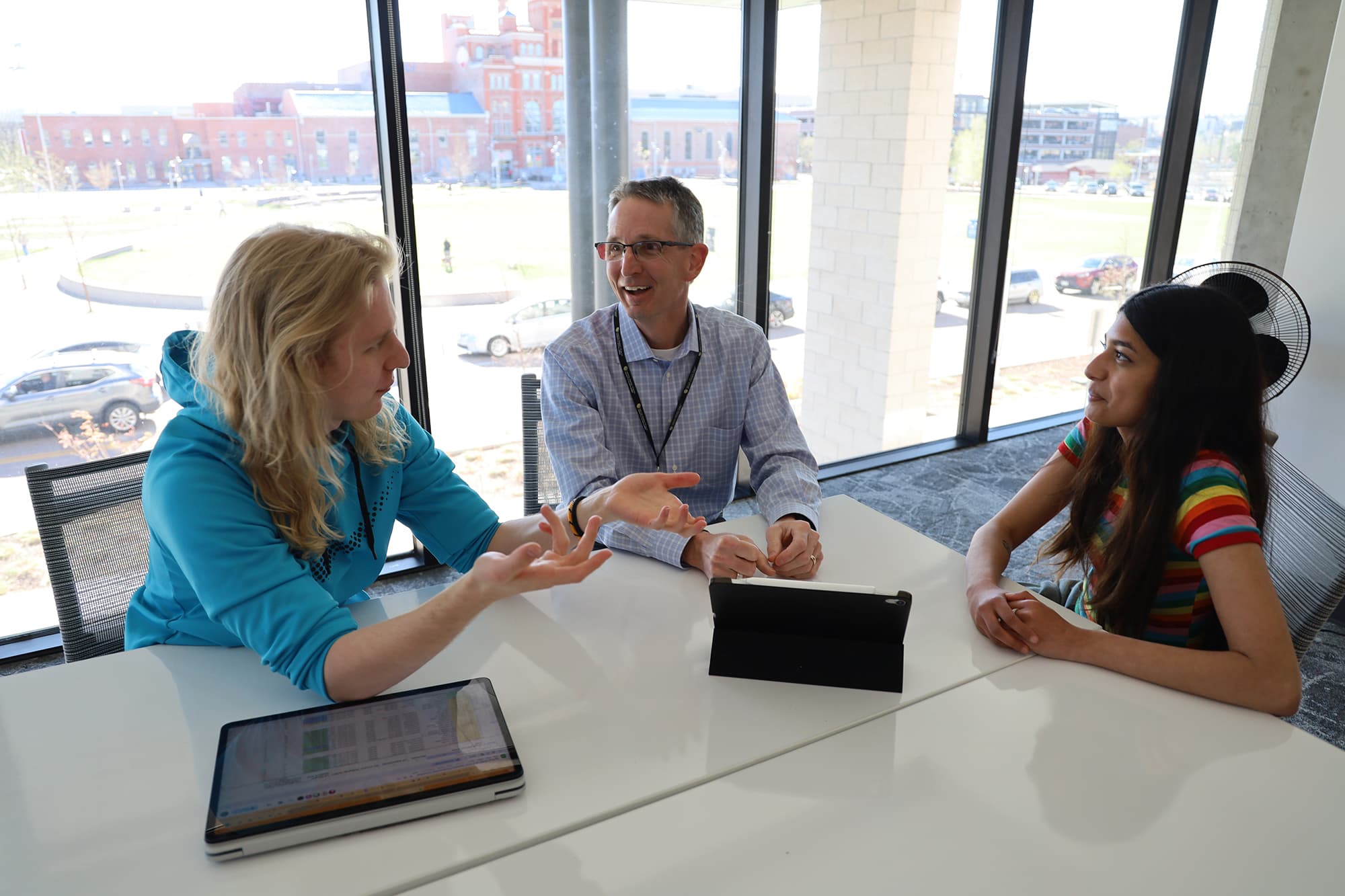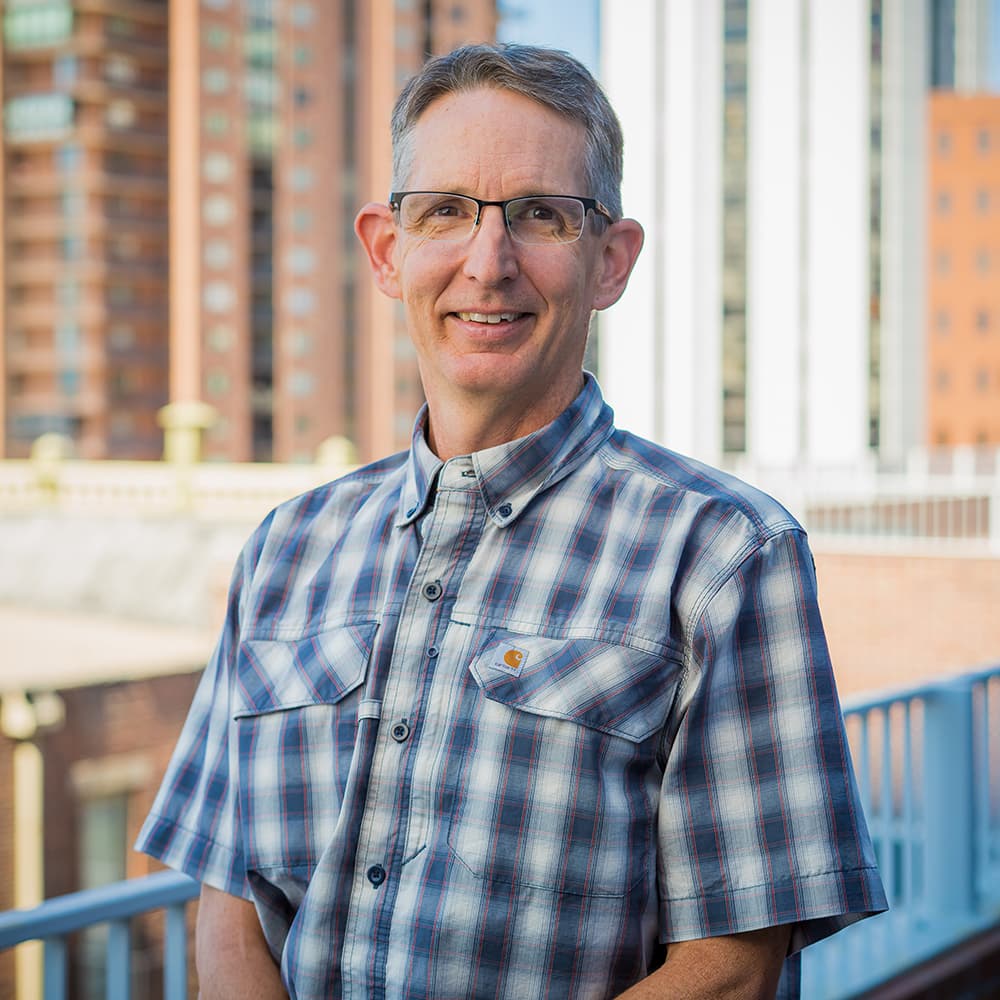Robert (Bud) Talbot Accepts Temporary Assignment at the National Science Foundation
Julia Cummings | School of Education and Human Development May 23, 2024
Robert (Bud) Talbot III, associate professor of STEM (Science, Technology, Engineering and Math) Education in University of Colorado Denver’s School of Education & Human Development, is taking a temporary assignment to promote excellence, diversity, and innovation in undergraduate STEM education across the nation as a program director in the Division of Undergraduate Education in the STEM Education Directorate at the National Science Foundation.
In this role, Talbot will have an unparalleled opportunity and responsibility to ensure that NSF-funded research is at the forefront of advancing knowledge. He will arrange for the merit review process of grant proposals, mentor STEM education researchers regarding grant solicitations and revisions, and conduct post-award monitoring of funded projects.
“It’s cool because I’ve always respected the mission of the NSF,” he said. “When I was a graduate student, I was supported by NSF grants because my advisor was a grant recipient. When I started as a faculty member, I sought and received NSF funding, and supported graduate students with that funding. And, at this point in my career, I view this next role as service toward an organization that supports impactful STEM researchers and quality projects.”
Talbot joined the faculty at CU Denver in 2011. He is known for helping STEM educators adopt evidence-based ways to teach science so that students can succeed and meet their goals, whatever those goals may be. His students aspire to become teachers, healthcare professionals, physicists, chemists, biologists, and the like. He has extensive experience leading undergraduate STEM education initiatives at CU Denver and has served as a principal investigator on several NSF grants. He is co-founder and current co-director of CU Denver’s Learning Assistant program and was a role model to many as he successfully led and co-led the following NSF grants:

Beyond Active Learning: Learning Assistant (LA) Supported Pedagogies in Large Lecture Science Courses (2015 – 2020)
STEM Club Leadership for Undergraduate STEM Education, Recruiting and Success (STEM CLUSTERS) - (2015 - 2018)
Developing Faculty Resources of Evidence-based Practices that Improve Learning and Equity in STEM - (2019-2024)
Talbot’s research interests include student-centered teaching and learning in undergraduate science classes such as biology, chemistry, and physics. In addition, he studies the adoption and use of student learning assistants in classrooms and how these peer-to-peer interactions can change how professors teach and how college students learn. His research also focuses on how students identify as STEM majors and feel connected in science classrooms. He has also published on research methods and measurement models in STEM fields. Research publications written in concert with his CU Denver doctoral students have been the most rewarding. “My students are so creative and data-savvy,” said Talbot. “And it is genuinely exciting to elevate amazing students who are diverse in gender and race in our field. CU Denver undergraduate and graduate students are exactly the kind of people we want to be in our workforce. So, helping them achieve their goals makes someone like me feel good.”
Talbot’s experience with NSF and the expertise he develops will directly benefit CU Denver STEM educators and the School of Education & Human Development. “Part of the reason I have been successful at securing NSF funding is that one of my mentors had served in the program director role at NSF, and when they returned to the university, they were able to coach me on how to navigate the grant funding landscape.” Talbot plans to serve as that kind of mentor for other faculty when his rotation at NSF is finished.
In 2020, Talbot joined Chancellor Marks in creating a video to celebrate Earth Day during the pandemic. The video featured Talbot’s interactive, student-centered teaching methods via his backyard science lab.
During the one to three years that he will be serving in the NSF role, Talbot expects to miss college teaching tremendously. “The most rewarding part of my faculty position is teaching and coaching the student learning assistants,” he said. “I'm sad to have to let that go temporarily to do this; but it's just a trade-off.” During his absence, Julie Bickner, who works with him in the Learning Assistant program, will take over his teaching duties. “She’s perfect for the role,” said Talbot.